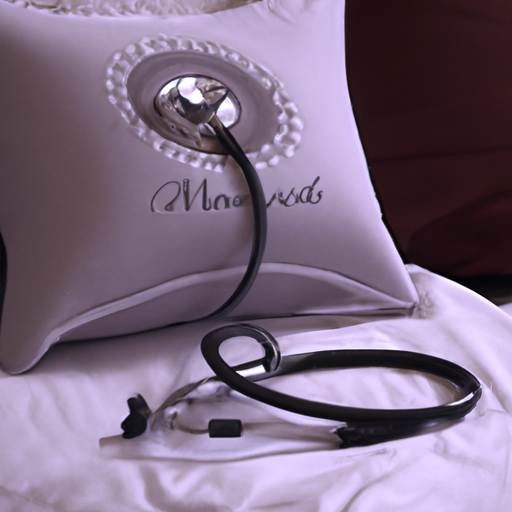If you or a loved one are in need of short-term skilled nursing care, it is important to understand what Medicare coverage entails. Medicare provides limited coverage for this type of care through its Part A program, which covers various services in a skilled nursing facility such as room, meals, therapy, and medications. However, it is worth noting that there are eligibility criteria that need to be met, and after the first 20 days, patients may be responsible for some of the costs, with expenses increasing after day 100. In this article, we will explore the options available for continued care after Medicare coverage ends, including at-home care, long-term care insurance, Medicaid, non-profit care, private pay, and appeals. We will also touch upon the limitations and criteria for each option, giving you a comprehensive overview to help you make informed decisions.
Medicare Coverage for Short-term Skilled Nursing Care
Medicare provides limited coverage for short-term skilled nursing care, which is important for individuals who require assistance and medical care following a hospital stay. Understanding Medicare coverage options can help you make informed decisions about your healthcare needs and financial planning. In this comprehensive article, we will explore the various aspects of Medicare coverage for short-term skilled nursing care to help you navigate this important topic.
Medicare Part A Coverage
Medicare Part A covers skilled nursing care if certain eligibility criteria are met. To qualify for Medicare Part A coverage, you must have been admitted to a hospital for at least three consecutive days and require skilled nursing care for a condition related to your hospital stay. This coverage is available in Medicare-certified skilled nursing facilities.

Covered Services in a Skilled Nursing Facility
Medicare covers various services in a skilled nursing facility to ensure that individuals receive the care they need for a safe and smooth recovery. Covered services include:
Room and Board
Medicare Part A covers the cost of a semi-private room, which typically includes a bed, basic furnishings, and access to necessary amenities.
Medical Services
Skilled nursing facilities provide round-the-clock medical care, including evaluations, monitoring, and treatments. This includes physician visits, nursing care, and assistance with medication administration.
Physical Therapy
Physical therapy is an important part of rehabilitation and is often necessary for individuals who have undergone surgery or suffered an injury. Medicare covers physical therapy services provided by skilled professionals in a skilled nursing facility.
Occupational Therapy
Occupational therapy helps individuals regain their independence in performing everyday activities, such as dressing, eating, and bathing. Medicare covers occupational therapy services provided by skilled professionals in a skilled nursing facility.
Speech and Language Therapy
Speech and language therapy is essential for individuals who have difficulty speaking, swallowing, or understanding language. Medicare covers these services if they are provided by skilled professionals in a skilled nursing facility.
Medications and Medical Supplies
Medicare Part A covers medications and medical supplies necessary for your care during your stay in a skilled nursing facility.
Dietary Services and Meals
Skilled nursing facilities provide meals and dietary services tailored to the specific needs of each individual. Medicare covers the cost of these services during your stay.
Social Services
Skilled nursing facilities often have social workers who can provide support, counseling, and assistance with discharge planning. Social services are an important part of the comprehensive care provided in these facilities.
Rehabilitation Services
In addition to physical, occupational, and speech therapy, skilled nursing facilities may offer other forms of rehabilitation services, such as respiratory therapy or specialized therapy for specific medical conditions. Medicare covers these rehabilitation services when provided by skilled professionals in a skilled nursing facility.
Costs and Coverage Limitations
While Medicare Part A covers skilled nursing care, it’s important to understand the costs and coverage limitations associated with this benefit.
Initial Coverage Period
For the first 20 days in a skilled nursing facility, Medicare Part A covers the full cost of care. However, after day 20 and up to day 100, you may be responsible for a daily coinsurance amount, which can vary each year. It’s essential to check the current coinsurance rate for the year in question.
Coinsurance and Cost-shares
After day 100, Medicare does not cover any costs for skilled nursing care. This means you will be responsible for the full cost of care. It’s important to have a plan in place for continued care after Medicare coverage ends.
Coverage Limitations on Services
Medicare may have coverage limitations on certain services. For example, while Medicare covers physical therapy, there may be a limit on the number of therapy sessions or a limit on the duration of therapy coverage. It’s essential to understand these limitations and work with your healthcare team to ensure you receive the necessary care.

Options for Continued Care after Medicare Coverage Ends
When your Medicare coverage for skilled nursing care ends, you have several options for continued care:
At-home Care
At-home care is an option for individuals who prefer to receive care in their own homes. Medicare Part B may cover some at-home care services if certain criteria are met. These services may include skilled nursing care, therapy, and medical supplies. However, limitations apply, and it’s important to understand what services are covered and any eligibility requirements.
Long-term Care Insurance
Long-term care insurance is a policy that covers the costs of long-term care, which may include skilled nursing care. It’s important to review your insurance policy to understand what services are covered, any limitations or exclusions, and any requirements for eligibility.
Medicaid
Medicaid is a joint federal and state program that provides medical coverage for low-income individuals, including coverage for skilled nursing care. Eligibility criteria and asset review requirements apply. It’s important to check with your state’s Medicaid program to determine your eligibility and understand the specific coverage options available.
Non-profit Care
There are non-profit organizations and disease-specific foundations that offer financial assistance for skilled nursing care. These organizations may have specific criteria for eligibility and an application process. It’s important to research and reach out to these organizations to explore the availability of funds and any requirements for assistance.
Private Pay
Private pay is an option for individuals who can afford to pay for skilled nursing care out of pocket. This option allows for flexibility in choosing a facility and care options. However, it’s crucial to consider the potential financial burden and ensure that you have adequate funds to cover the costs over an extended period.
Appeals
If you believe that your care should continue but Medicare coverage is ending, you have the right to appeal the decision. The appeals process involves submitting requests to different entities, including the Quality Improvement Organization, the Qualified Independent Contractor, the Office of Medicare Hearings and Appeals, and potentially the Medicare Appeals Council or Federal District Court. It’s important to familiarize yourself with the appeals process and work with your healthcare team to gather the necessary documentation and support for your case.
Navigating Medicare coverage for short-term skilled nursing care can be complex, but understanding the options available to you is crucial. By familiarizing yourself with Medicare coverage, at-home care options, long-term care insurance, Medicaid eligibility, non-profit assistance, private pay options, and the appeals process, you can make informed decisions about your healthcare and financial well-being. Remember to consult with healthcare professionals and financial advisors to find the best solutions for your unique situation.


